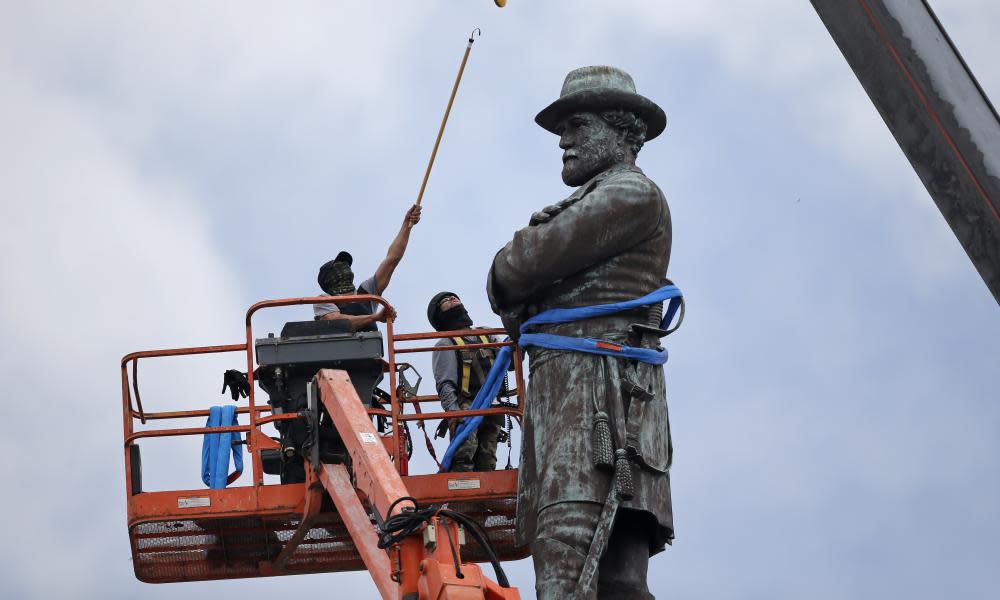Mississippi lawmaker calls for lynchings after removal of Confederate symbols

A Republican state lawmaker in Mississippi, the last remaining state in the US to carry the Confederate battle emblem within its official flag, has posted an incendiary threat on social media calling for those removing Confederate monuments from public display to be lynched.
Karl Oliver, a funeral director from Winona Mississippi who represents the 46th district of the state, made his explosive remarks on Facebook. He began by lambasting the recent events in New Orleans, in neighboring Louisiana, which saw the last of its Confederate monuments – a statue of the south’s civil war commander Gen Robert E Lee – taken away on Friday in a move by local officials to end the visible celebration of white supremacy.
Oliver called the action in New Orleans “heinous and horrific”, and likened it to Nazi-era book burning. He went on to make his threat against anyone wanting to “destroy historical monuments of OUR HISTORY”, saying: “They should be LYNCHED!”
Dear World: Meet #Mississippi state Rep. Karl Oliver #msleg #lynching #slavery #Confederatemonument @thehill @WXVT15 @ddt_news @AP @cnnbrk pic.twitter.com/hczQoxYuRm
— Sen. Derrick Simmons (@SenDTSimmons) May 22, 2017
The post has since been removed. The Guardian asked Oliver to explain his remarks but he did not immediately reply.
The lynching threat was all the more chilling given the history of the Republican politician’s constituency. The most comprehensive record of lynchings of black people in the southern states between 1877 and 1950, conducted by the Equal Justice Initiative, gave Mississippi the dubious distinction of coming second in the league table with 576 lynchings out of a total of 3,959 (second only to Georgia with 586).
Oliver’s district includes Money, Mississippi, the small town where Emmett Till, aged 14, was brutally murdered after talking to a white woman in a grocery store. The national revulsion provoked by the teenager’s lynching became a turning point in the civil rights movement, and his funeral casket is today a centerpiece of the National Museum of African American History and Culture in Washington.
The timing of the Republican lawmaker’s outburst is also sensitive. Tension is running high in Mississippi over the enduring presence of the Confederate battle emblem – a red square traversed by a blue cross dotted with 13 white stars, known as the southern cross – in the official state flag.
Biloxi, on the Gulf Coast, last month became the latest Mississippi city to refuse to fly the state flag in protest against its Confederate component. Other cities, including the state capital, Jackson, as well as all of Mississippi’s public universities have already brought the flag down.
The controversy has also engulfed a major softball championship at the University of Mississippi, known as Ole Miss. Though the university hasn’t flown the flag since 2015, the local chapter of the NAACP called for the event to be moved out of the state in protest against the emblem’s endurance.
Mississippi continues to be peppered with Confederate monuments and geographic references to the pro-slavery southern struggle in the civil war. The invocations include “Jefferson Davis County”, named after the president of the Confederate states, and the figure of a Confederate soldier at rest that towers atop a tall obelisk in the grounds of the Old Capitol in Jackson.
Oliver’s lynching remark has been strongly rebuked by fellow Mississippi Republicans. The governor, Phil Bryant, called his language unacceptable and said it “has no place in civil discourse”.

 Yahoo News
Yahoo News 
